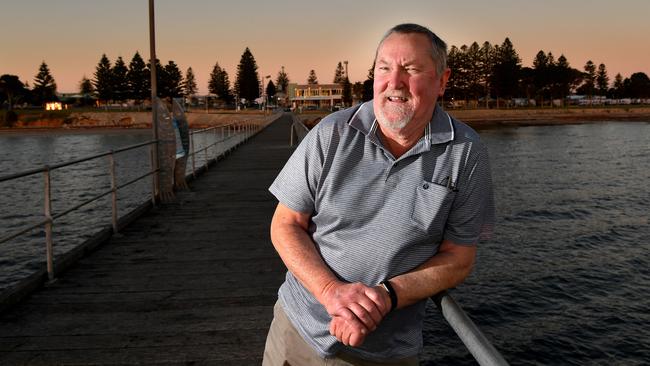Indigenous leaders ‘intimidated’ over card
Aboriginal leaders who helped to design the cashless debit card are refusing to openly back it, in the latest blow to the Morrison government’s attempts to make it a permanent feature.

Aboriginal leaders who helped to design the cashless debit card are refusing to openly back it for fear of retribution, in the latest blow to the Morrison government’s attempts to make it a permanent feature of the welfare system.
The leaders of five Aboriginal communities in the card’s original trial region of Ceduna, South Australia, have declined to publicly back the CDC because of fears of a backlash in their communities as the measure forcibly diverts spending on alcohol.
The government in December extended the trial of the CDC for a further two years in three states after the Senate defeated the government’s push to make it permanent, with opponents claiming it was ineffective and paternalistic.
The card, first introduced on a trial basis in Ceduna in 2016, quarantines 80 per cent of welfare payments to prevent spending on alcohol, drugs or gambling, leaving 20 per cent as cash. About 40 per cent of the 13,396 people on the card in Australia are Indigenous. The card has divided Ceduna and other trial communities in Western Australia and Queensland, even though the weight of evidence suggests it succeeds in reducing alcohol abuse.
Aboriginal leaders in the Ceduna region played a key role in co-designing the card in 2016 and were strong public supporters of the concept, which at that time enjoyed bipartisan political support.
Although the leaders are said to privately still support the card, which has succeeded in reducing alcohol abuse in Ceduna and in other trial areas, their refusal to offer open public support makes it much harder for the government to sell the concept. Aboriginal leaders who were strong public advocates in 2016 declined to be interviewed when The Weekend Australian visited Ceduna.
Instead, leaders of the five local Aboriginal communities released a joint statement, which pointedly omitted any support for the card, saying only “the Far West Aboriginal Community Leaders Group continue to monitor the effects of the card in our communities”.
Former Ceduna mayor Allan Suter says local Aboriginal leaders are now reluctant to speak publicly because of threats. “Opponents of the card will do anything they can to rubbish it, they are driven by ideology and are not frightened to use threats. That’s why some people are wary of talking about it.”
The government’s attempts to sell the concept of the card have been undermined by incomplete and contested data on whether the CDC is effective in reducing alcohol and drug abuse in vulnerable communities.
Although studies suggest it has reduced alcohol abuse in Ceduna and other trial sites in WA and Queensland, the studies have not been conclusive and the Australian National Audit Office in 2018 said there had been a “lack of robustness” in data collection.
One of the few Aboriginal leaders willing to speak out in favour of the CDC is West Australian-based Shelley Cable, who works with Andrew Forrest’s Minderoo Foundation. She says supporters of the card are being intimidated into silence. “Unfortunately, balanced opinions and support for the CDC is met with outrage and anger. This intimidation means it is easier – and safer – for supporters to stay quiet. Unfortunately, the conversation … has been unashamedly hijacked by opponents who spread rumours, mistruths and outright lies. Many CDC opponents are unaware or ignore the fact the CDC was only introduced to communities, including Ceduna, at the specific request of local, and mainly Indigenous, leaders.”
Ms Cable said women, especially, were often the strongest supporters of the CDC within Indigenous communities.



